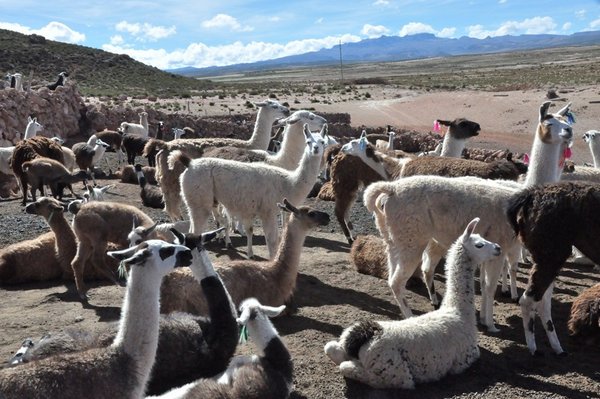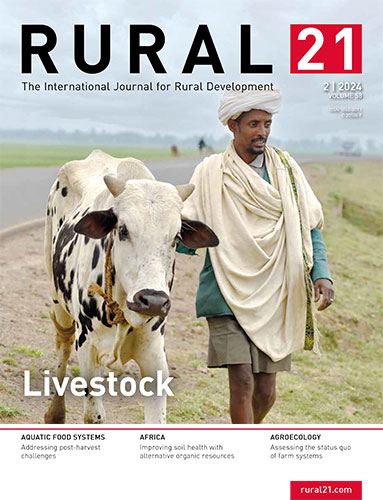- Share this article
- Subscribe to our newsletter
Reducing climate vulnerability in the value chain of camelids in the Andes
Despite their importance, camelids have been undervalued, lacking sufficient support and investment. In countries like Bolivia and Peru, where alpaca and llama breeding thrive, efforts are underway to explore new opportunities in their value chains to combat climate change effects. The United Nations' declaration of 2024 as the International Year of Camelids presents a timely opportunity to better comprehend the sector's challenges and differences.
South American camelids encompass four species: alpacas, llamas, vicuñas and guanacos. Alpacas and llamas, domesticated species, sustain the livelihoods of approximately 143,000 families in rural indigenous communities, providing various resources like milk, meat and textiles. These animals exhibit adaptability to harsh geographical and climatic conditions at elevations of 3,600 metres or higher, while their unique grazing methods prevent soil degradation and desertification.
However, in recent decades, there has been an increase in climate risks in these ecosystems, including droughts and out-of-season frosts, compelling breeders, primarily women, to seek higher altitudes for pasture and water sources or sell their animals due to impending climate-induced deaths. Moreover, llamas and alpacas represent the main source of livelihoods for breeding families living in these habitats.
Empowering women, reducing climate-related risks
The camelid value chain presents structural complexities hindering sustainable and profitable market integration for Andean highlands pastoralist families. Challenges range from genetic selection for better fibre quality to efficient pasture and water management. Many communities lack the knowledge to add value to raw materials, leading to income loss due to numerous intermediaries in the commercialisation process.
Efforts in Bolivia and Peru, including rural extension and industrialisation programmes, have somewhat improved conditions. Experiences from the Andes Resilientes al Cambio Climático project, facilitated by HELVETAS Swiss Intercooperation-Avina Foundation, focus on identifying value chain links with significant socio-economic impacts and sustainable breeding practices that reduce climate vulnerability.
In Peru, where alpaca fibre production dominates, initiatives aim to empower rural women as Master Alpaca Fibre Categorizers and Classifiers, enhancing fibre quality and market negotiation conditions. Bolivia, with its substantial llama population, seeks to integrate climate risk into financial products to bolster the sector's resilience.
Both experiences underscore the vulnerability of camelid value chains to climate change and emphasise interventions in critical links to be more resilient to these impacts. Training, financing and market access are pivotal for effective adaptation. In Peru, training women enhances fibre production and income, while in Bolivia, integrating climate risk into financial mechanisms can bolster adaptive capacity. These interventions aim to strengthen the camelid sector against projected climate change impacts, ensuring its sustainability and profitability.
For more information read the complete article "Unveiling opportunities and reducing climate vulnerability in the camelid value chain in the Andean Region" in the livestock edition of the Rural21 print magazine.
Authors:
Maria Gracia Aguilar, Programmatic Coordinator for the SDC Andes Resilientes al Cambio Climático regional project at Helvetas Peru. Contact: mariagracia.aguilar@avina.net.
Ana Maria Vela is Communications Officer for the SDC Andes Resilientes al Cambio Climático regional project at Helvetas Peru. Maria Gracia Aguilar is Programmatic Coordinator at Avina Foundation.
Maruja Gallardo is National Coordinator for the SDC Andes Resilientes al Cambio Climático regional project at Helvetas Peru.
Maria Reneé Pinto is National Coordinator for the SDC Andes Resilientes al Cambio Climático regional project at Helvetas Bolivia. Contact: mariagracia.aguilar@avina.net





Add a comment
Be the First to Comment